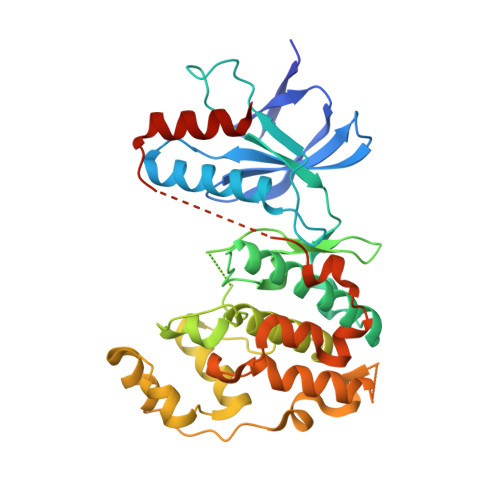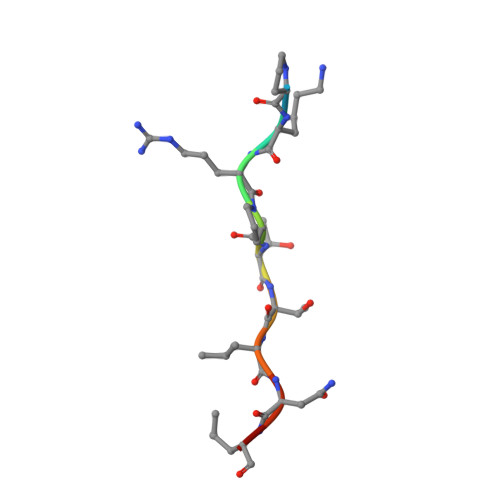Development of indole/indazole-aminopyrimidines as inhibitors of c-Jun N-terminal kinase (JNK): optimization for JNK potency and physicochemical properties.
Gong, L., Han, X., Silva, T., Tan, Y.C., Goyal, B., Tivitmahaisoon, P., Trejo, A., Palmer, W., Hogg, H., Jahagir, A., Alam, M., Wagner, P., Stein, K., Filonova, L., Loe, B., Makra, F., Rotstein, D., Rapatova, L., Dunn, J., Zuo, F., Dal Porto, J., Wong, B., Jin, S., Chang, A., Tran, P., Hsieh, G., Niu, L., Shao, A., Reuter, D., Hermann, J., Kuglstatter, A., Goldstein, D.(2013) Bioorg Med Chem Lett 23: 3565-3569
- PubMed: 23664880
- DOI: https://doi.org/10.1016/j.bmcl.2013.04.029
- Primary Citation of Related Structures:
4IZY - PubMed Abstract:
A novel series of indole/indazole-aminopyrimidines was designed and synthesized with an aim to achieve optimal potency and selectivity for the c-Jun kinase family or JNKs. Structure guided design was used to optimize the series resulting in a significant potency improvement. The best compound (17) has IC50 of 3 nM for JNK1 and 20 nM for JNK2, with greater than 40-fold selectivity against other kinases with good physicochemical and pharmacokinetic properties.
- Department of Medicinal Chemistry, Roche Palo Alto, Palo Alto, CA 94304, USA. leyi.gong@sri.com
Organizational Affiliation:


















